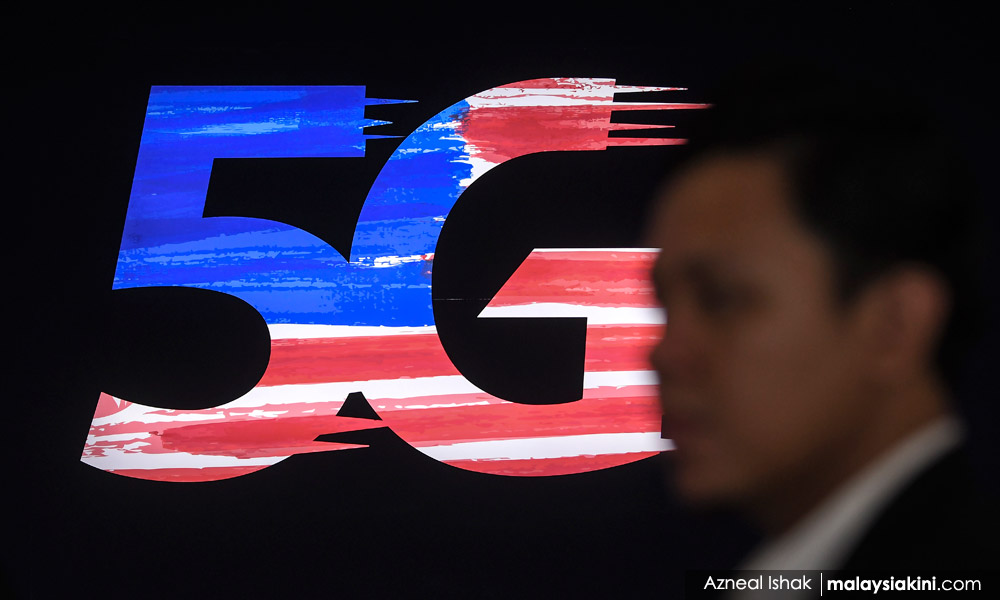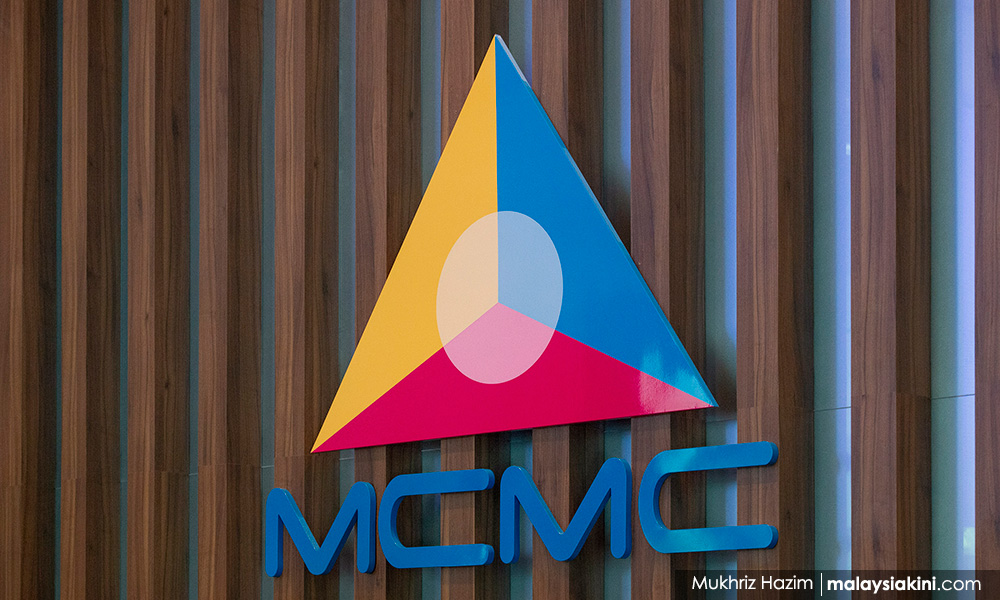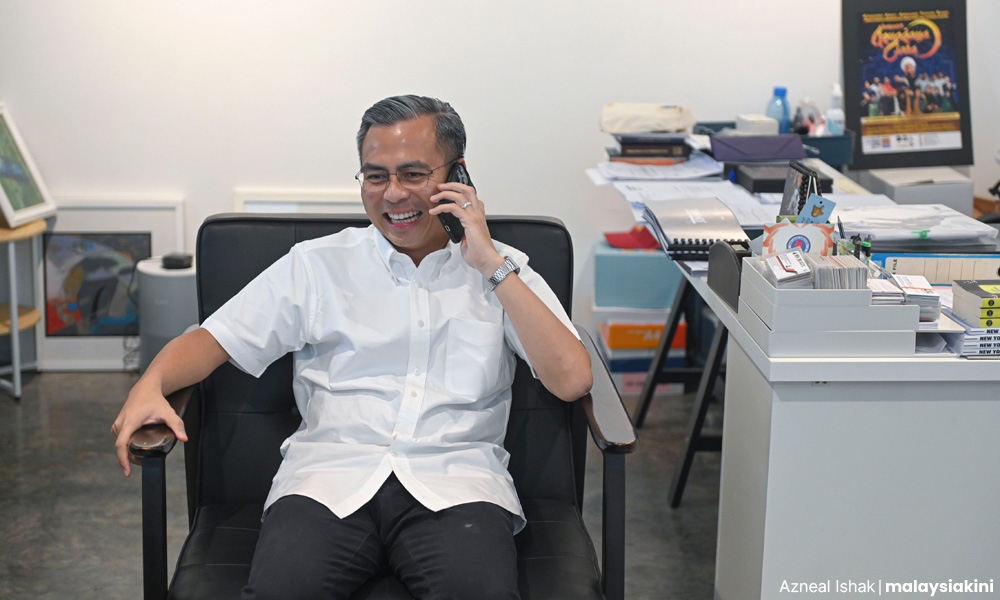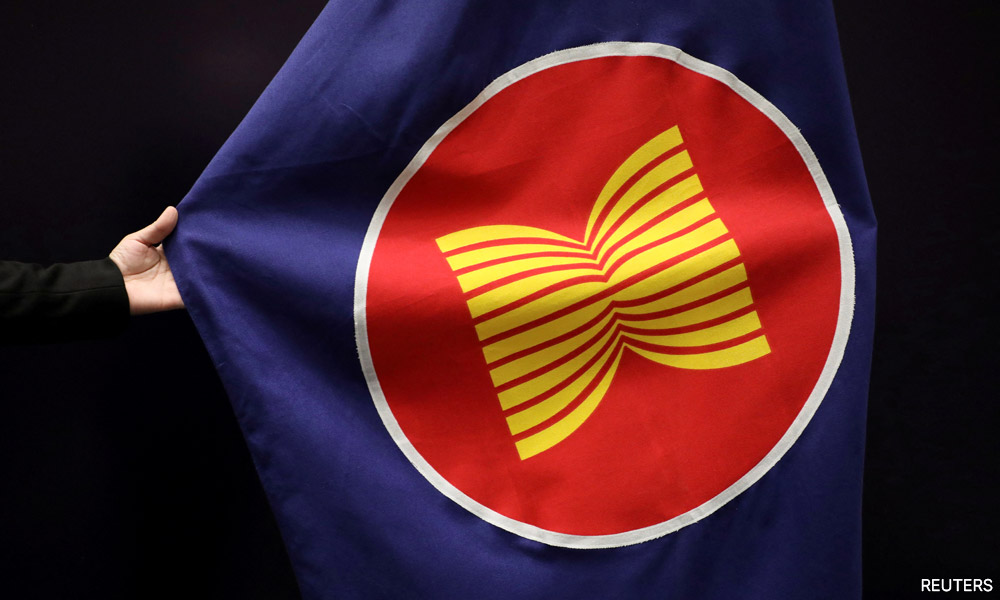INTERVIEW | The digital economy could potentially be democratised with better infrastructure after basic connectivity in rural areas is improved, Communications and Digital Minister Fahmi Fadzil said.
“The reason we do need to have full, almost universal coverage is (because) we want to make sure that we bridge that digital divide between rural and urban areas, between the T20 and the B20.
“The digital economy could potentially be democratised with better infrastructure, and my intent is to see to it that we cover as much of the last three percent as possible,” Fahmi (above) said in this second part of an interview with Malaysiakini.
In Sept 2022, it was revealed that about 30,000 Orang Asli in the Gua Musang district were to benefit from the implementation of Phase One of the National Digital Network Plan (Jendela).
This involved the construction of telecommunication towers and fibre optic facilities in their villages.

Fahmi, 42, acknowledged that basic connectivity is a challenge of what he called the “last three percent”.
“Here, the challenge is in getting the infrastructure rolled out, connected to what people might think of as uneconomical areas.
“Because of things like satellite technology, we have been able to address some of these issues,” he said, at his service centre in Lembah Pantai.
The Malaysian Communications and Multimedia Commission (MCMC) also recently unveiled plans to increase internet accessibility for the Orang Asli community in Gua Musang, Kelantan.
This came after Pos Balar and Pos Bihai residents urged the government to modernise the local mobile internet infrastructure to improve their connectivity and communication.

Fahmi noted that in the last four months, internet usage has increased exponentially, creating congestion issues.
“This is where you can see that you can connect that ‘last three percent’.
“Out of that last three percent, about 1.5 to 1.8 percent can eventually be connected with fibre optics but there might be the last one percent that will have to rely on satellite connectivity,” he said.
Fahmi disclosed that he has had engagements with Measat Satellite Systems and SpaceX-operated satellite constellation Starlink, and is looking at other options.
“How is it that satellite connectivity can be more affordably rolled out, especially in rural areas and these really remote areas, to make sure that we have as close to 100 percent connectivity as possible so that people can benefit from being part of the digital economy?” Fahmi asked.
The minister expressed his intentions to connect up to the last one percent, if possible.
He also acknowledged the urgent need to address issues of digital literacy, safety and data protection, as well as how the remaining “three percent” can be part of the digital economy.

He stressed that it is not only about providing access to these communities but to help them increase their quality of life, as well as productivity and income.
Appropriate to roll out 5G?
Some critics have also questioned whether it is appropriate to roll out 5G connection when many parts of the country are still lacking in basic connectivity.
In response to this, Fahmi acknowledged that there is an argument that the primary beneficiaries of such technology would be small and medium enterprises (SMEs), industries and corporations.
This is because of aspects of the industry, such as machine learning, machine learning, Internet of Things (IoT) applications and the Fourth Industrial Revolution (4IR).
“Yes, for end users like us, I don't think I mind watching faster videos on YouTube, but I feel this resource could be effectively used by industries.
“At the same time, ordinary Malaysians really want even basic 4G, because we no longer have 3G, so that kind of connectivity has to be resolved. This is why the prime minister (Anwar Ibrahim) said, ‘Don't necessarily look at headline numbers’.
“There's a disconnect between those numbers and the actual lived experience on the ground, so we can see we have 50 percent coverage of populated areas for 5G, but people complain that the 5G speeds are not up to par,” acknowledged the minister.
According to reports he received from MCMC, out of 4,000 sites rolled out by the Digital Nasional Berhad (DNB), the government agency is still unable to verify numbers on the 5G rollout.
“Let's just take 5G, you can't get the speed without fiberised towers. Out of all of the towers that have been boarded for 5G, only about 87 percent are fiberised. So you can build the towers but fiberisation is trailing.
“We are trying to understand right now from the industry. What is it that can be done, policy-wise and incentive-wise, to speed up the process of fiberisation?
“When it comes to 4G, this basic problem of orang balik kampung (folk returning to their hometown): on different parts of the highway, your connectivity drops. Sometimes, you're on call and it just drops,” said Fahmi, adding that MCMC is looking at the issue.
“I would be happy to say that we hope within this quarter or at the start of the next quarter, there will be some major announcements to comprehensively resolve this issue,” Fahmi said.
Scam cases
Touching on scams, according to Inspector-General of Police Acryl Sani Abdullah Sani last September, 13,703 scam cases were flagged in 2019.
It involved losses amounting to RM539 million. The number rose to 17,227 cases the year after - with RM511.2 million recorded losses.
"Last year (2021), there were 20,701 scam cases registered with losses amounting to RM560.8 million.
"Between January and July this year (2022) alone, 12,092 cases were reported with losses of RM414.8 million," Acryl Sani said in a New Straits Times report.
Following a series of meetings with various ministries and agencies discussing the National Scam Response Centre (NSRC), Fahmi questioned NRSC’s plans to tackle online financial scams – which it focuses on.
“What are the kinds of challenges that (NRSC) faces? What are the kinds of things that it needs to get done in order for us to clamp down on scam activities?” he asked.

The NSRC was established as a command centre to better coordinate rapid response to financial scams in the online realm as well as act against the perpetrators.
The NSRC - which was first established in October 2022 - is a collaborative effort between the police, the National Anti-Financial Crime Centre (NFCC), MCMC, Bank Negara Malaysia (BNM), as well as financial institutions and key players in the telecommunications industry.
Based on several briefings, the minister listed the various forms of scams from those conducted on emails, phone calls, account scams, cleaning scams, investment scams, job scams and social media platforms such as Facebook and Telegram, among others.
“Each of them looks for slightly different targets. What we need to do, I believe, as an administration, is to look at the laws and quickly identify what we need to do to strengthen the laws.
“To me, what's important is not only do we reduce the incidences of scams, but also to assist victims of scams. My own back-of-the-envelope calculation is that more than half a billion ringgit is lost every year due to scams.
“Based on some of my recent meetings, there is an estimate that for every scam that is reported, that could easily be nine to 10 that goes unreported, for various reasons,” said the Lembah Pantai MP.
Personal experience with a scam
Notably, the minister himself has a personal experience dealing with it - when his mother Fauziah Ramly, a senior civil servant, fell victim to a scam which resulted in the loss of RM75,000 from her Tabung Haji account.
“In the case of my mum, she was a senior civil servant, and for her to confess, to tell others that she fell, victim… She believed that the person on the line was really from the Inland Revenue Board (IRB). She was malu (embarrassed).
“She didn't want people to laugh at her. I found out (about the scam) not from her, but from my brothers. They said, ‘Mum lost RM75,000 from her Tabung Haji’,” said Fahmi.
“Sometimes, people don't want others to know that they made a mistake,” added the minister.
He described such incidents as being extremely worrying due to the lack of knowledge of where the funds are going.
“We don't know who is using these amounts (and) for what purposes. It could be to feed into the black economy or other crimes so this is extremely worrying.
“What we've also seen is that it could be cross-jurisdictional. We've seen some media reports showing how people who fell victim to job scams were forced to become scammers themselves,” he said, referring to multiple cases of Malaysians who were allegedly duped by syndicates offering high-paying jobs in Cambodia and suffered from harrowing confinement and torture.
“In other words, the scam ecosystem consists of scam upon scam about scams,” he added.
Strengthening laws to tackle scams
Fahmi went on to call for laws in the country to be strengthened and for an Asean-wide framework to tackle such crimes.

“I believe we do need to assess whether there needs to be an Asean wide regulatory framework to update the law in member countries to curb this activity,” he said, calling for better cooperation between better resources and law enforcement agencies within Asean.
He told Malaysiakini that the prime minister has instructed Deputy Finance Minister Steven Sim to look into the matter “very seriously”.
The minister reported that there have been meetings between the Finance Ministry, Communications and Digital Ministry, Home Ministry and Foreign Ministry to discuss the matter.“These four ministries will play a critical role in ensuring that we bring the various pieces of legislation up to date, because the fact of the matter is, scammers also quickly adapt their strategies and adopt new means to scam people,” he noted.
Fahmi previously said the MCMC had successfully blocked 1.8 billion scam calls between 2017 and 2022, and that as many as 300 million SMS scam messages had also been blocked since 2018.
On Jan 22, the minister announced his plans to meet officials from the Telegram messaging app to discuss measures to counter the many scams taking place on the popular app. - Mkini
This is the second of a three-part interview with Communications and Digital Minister Fahmi Fadzil.
Watch out for ‘Fahmi dreams of a golden digital decade for Malaysia’ tomorrow.




No comments:
Post a Comment
Note: Only a member of this blog may post a comment.